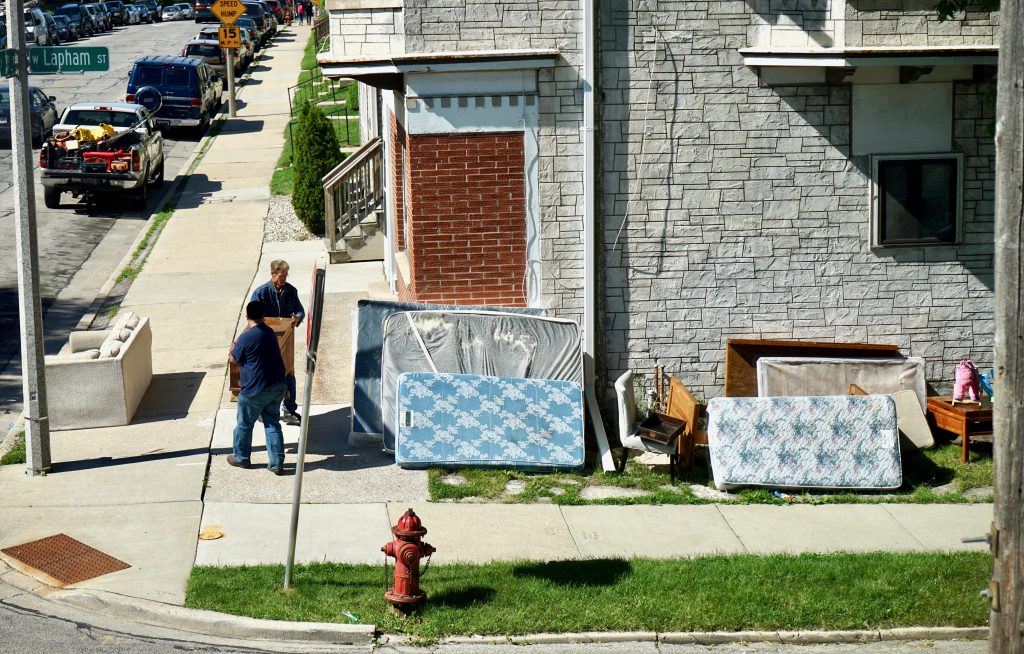What You Need To Know About Eviction Process
Experts offer tips for renters.
More than four years after being evicted, Elizabeth Brown says she still is not completely over it.
But she’s learning to live with the fallout.
Brown said it took her almost a year to find a home after her eviction.
“It stays on your record for years,” she said. “You have to be prepared to settle” for a lower quality of living.
Brown said that in her experience, the only property managers who rent to people with evictions are slumlords or those who are going to overcharge you.
What struggling renters need to know
Document, document, document: Nick Toman, a staff attorney with the Legal Aid Society of Milwaukee, said any transactions between a tenant and landlord should always be documented as anything unrecorded becomes harder to prove in court.
The process: “The first thing to understand is that evictions are three lawsuits wrapped into one,” Toman said. The first is the actual eviction, the right to possession of a property, and the second and third are essentially about who owes who what, and property damage, he said.
The steps: Toman said the first step to any legal eviction is terminating the tenancy. There are a few ways that can happen.
Once any of those notices are given and the tenant does not vacate the property, the property owner can file for eviction.
“Self-serve” evictions are when property owners remove a tenant and their belongings from a property without going through the legal process. These are against the law, according to Toman, and so is filing evictions before giving notice.
What tenants can do: The best protection for a tenant is to have renters insurance and to keep proof of big purchases as expensive things sometimes get lost in evictions.
What not to do: “A tenant cannot withhold rent by themselves,” Toman said. “Even if the property owner is in the wrong, withholding rent is shooting yourself in the foot.”
A landlord’s perspective
Heiner Giese of the Apartment Association of Southeastern Wisconsin said evictions are difficult for property owners, too.
“You rent out a property for profit,” he said. “You lose money evicting people.”
He said there is a misconception that property owners intentionally or maliciously evict tenants often.
“Our association has now done some intensive research on eviction judgments in Milwaukee County and Wisconsin. In Milwaukee, landlords seek unpaid rent in less than 30 percent of the eviction cases,” he said.
Giese said this is especially rough period for small-time property owners.
“There are cases where tenants find loopholes and go a few months to a year without paying rent,” he said.
Giese stresses the benefits of all parties talking to each other to avoid eviction.
“When tenants and landlords communicate situations, it can be less likely for eviction to take place,” he said.
Brown agrees. She said she feels lucky to have her current landlord.
“I am only able to stay because he shows grace,” she said.
Resources to consult if you’re worried about eviction
- Community Advocates rent helpline: 414-270-4646
- Legal Aid Society of Milwaukee: 414-727-5300
- Mediate Wisconsin: 414-939-8800
- Legal Action of Wisconsin: 855-947-2529
- Social Development Commission: 414-906-2700
This story was originally published by Milwaukee Neighborhood News Service, where you can find other stories reporting on fifteen city neighborhoods in Milwaukee.
If you think stories like this are important, become a member of Urban Milwaukee and help support real, independent journalism. Plus you get some cool added benefits.






















